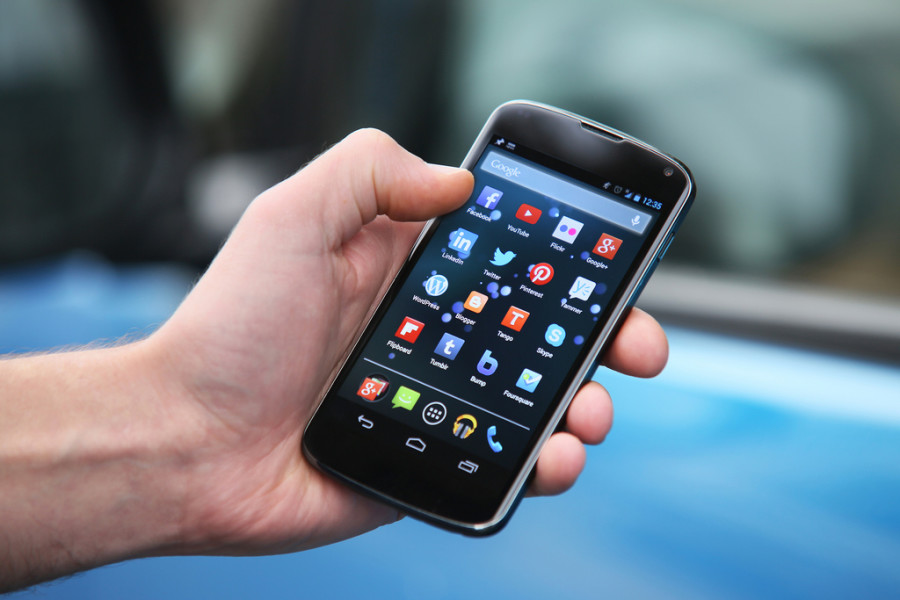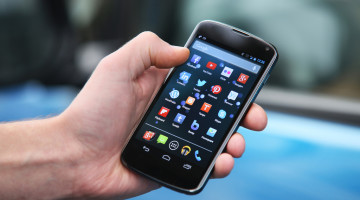Smartphones play a vital role in our day-to-day lives. With the increases in phones, there is also a massive increase in the usage of mobile applications. The importance of mobile devices in the digital age is obvious, especially with Google’s stance in favour of mobile devices over desktop for the last few years – as any Manchester web designer would know.
There are about 178 billion applications ready to download. About 45% has increased over the last five years. The mobile application industry is increasing, along with evolving technologies. We end up downloading apps on our mobile for shopping, games, photo editor, music, etc.
Blue Whale Media, as a web design agency, also works on doing online payments, access keys, banking information, medical and personal data from our devices without realizing the security and threat that an unprotected application can bring to the system.
Why Do We Need Mobile App Security?
Do you know that malicious mobile malware infections increase by 163% every year? And about 56% to 73% of the top one hundred paid apps from Apple and Google stores are hacked?
Mobile app security protects our device from malware, hacking, and other criminal manipulation. It also tries to reduce and shield the risk of exploits in our mobile apps.
To protect our devices from sensitive data, malvertisers, malware, and virus attacks, we should secure our mobile apps so that we do not face the consequence later.
The mobile application development company is doing everything they can and applying a structured approach.
Below are a few suggestions you can use to increase your knowledge of mobile app security, which will help you execute a secure mobile application.
Encryption
The design and coding in your Mobile are very prone to malware taps bugs. Most attackers repack popular apps into “rouge apps” and publish it as though it looks the same.
Encrypting the source code is the best way to avoid risk. Through encryption, the source code is ensured and not accessed by anyone.
The most vulnerable data is local data encryption which is necessary for the mobile apps to stay secure. Local database security uses Ciphered local storage plug-in, and the current Android OS versions take the encryption of local data care.
Limitations
There is a need to understand the platform’s security features and weaknesses before developing multiple mobile operating systems. After which one should code accordingly to null the possible chances of attacks.
Encryption support, geo-location, and password support are a few outlines to consider supporting the operating system. It also helps in controlling and distributing the apps on the platform.
Authorized API
The application program interface (API) uses other apps and external libraries to communicate. It is essential to use only authorized APIs in code as it is vulnerable to attacks.
Tokens and keys of API play an essential role in security, tracking, and efficiency.
There should be security measures to protect from malicious attacks. Since the transport mechanism and API authentication differs from platform to platform, it is vital to verify and secure all APIs.
Authentication
One of the successful ways to secure your mobile application is to use Multi-factor authentication (MFA). This approach mainly uses computers where the users can pass by giving authentication factors such as biometrics, passwords, or security code, which the only user has.
Mobile phone authentication also adopted this approach. It uses two-factor authentication, which involves passwords and mobile registered devices or numbers.
The authentication process is advantageous for a mobile application that has access and stores critical and confidential data.
App developers have gained a lot through authentication, as it helps the user to process quickly. One-time-password is one of the best additional measures to increase mobile app authentication as it prevents unauthorized access.
Data leakage
Storing essential app data on insecure locations is known as data leakage on a mobile device. When stored data on the site of the invention are available for other applications, then unintended data leakage occurs.
Some of the causes of data leakage are malware, social engineering, too much permission, user error, weak and stolen credentials, and bugs in the operating system.
Hence it is essential to implement advertising and to use secure analytics providers to protect you from unintended data leakage.
Integration with MAM/MDM
To alleviate app and device threats, various organizations support the integration of Mobile Device Management (MDM) and Mobile App Management (MAM).
Regulated distribution remotely wipes applications and data from the device. Controlling employee apps within multiple security levels are some ways MDM and MAM help organizations create app stores.
For various vendors of MDM/MAM, inbuilt support is provided, such as Good technologies, Airwatch, Apperian, etc. This helps your app security to always stay at the highest order.
Session handling
Sometimes, even when we switch away from the app, the previous session continues or is left open for a more extended period. This process is called improper session handling.
Many app makers and e-commerce apps allow long sessions to increase their buying process. It impacts the security of the device and can manipulate and take valuable information from the user’s data.
Improper session handling gives the same outcome as weak authentication. It is another issue of mobile app security. When the user experiences are at high priority, and the other session is left open, the problem of safety arises.
Failure to invalidate sessions on the backend, insecure token creation, and lack of adequate timeout protection are some of the examples of improper usage of session handling.
To prevent improper session handling attacks, try to ensure that the mobile app code creates, destroys, and maintains session tokens.
Conclusion
It is essential to secure our Mobile as we all live in a world of mobility. Mobile companies need to increase their knowledge and implementation of mobile app security.
It will significantly help the users from getting hacked by any unwanted sources.
The main goal of a mobile app development service is to reduce the risk and remove and evaluate vulnerabilities while ensuring user satisfaction. By adopting the measures mentioned above, it will be easy to save both the apps and your mobile data.
It is also a secure step to test your application from time to time against a randomly generated security or hire a hacker to help you identify the backdoors within your application.





